Shades of brown are beginning to patch the white blanket that covers the meadow. Mud smudges the edges of the snow and the tracks of our road are a sloppy, soupy sludge, easiest driven on early in the morning when the ground is still frozen. The afternoons are warm in the shelter of our porch. When wrapped in a blanket with my eyes closed, the sound of the birds singing makes me imagine that the meadow is ripe with green and speckled in wild flowers. These sunny days have us dreaming of summer time adventures.
While we’ve turned our energy to planning our adventures for the upcoming sunny season, I’m not letting you in on those surprises just yet, instead today, I will take you back to an adventure we had in the late summer of last year. This particular trip, I had every intention of sharing with you but I slipped into a deep winter hibernation and in such a sanctuary I loath sitting in front of a screen. If only I could handwrite each of you a letter, perhaps then you might hear from me more often.
Let’s step back into late September 2022. The harvest was complete, the nights were crisp on this eastern edge of the Rocky Mountains and we came to realize that we genuinely missed not having camped over the summer. We decided to head west to where the snow wasn’t threatening to fly, far enough west that we could dip our toes into the salty waters of the Pacific Ocean, where we could watch the sun set over a vast and unobstructed horizon.
Thanks to the previous year’s canned meals that we hadn’t quite finished and my extraordinary organization of our camping gear when moved to our tiny house, getting on the road for a two week trip was fairly painless. These are the times I thank myself for all the work I did some other time. After two days of driving, including one ferry ride, we arrived at Greenwood campground in Pacific Rim National Park on the western coast of Vancouver Island. Nestled in a rainforest, we set up our tent where faeries frolic and drops of dew catch on the fronds of ferns to play with what little sunlight makes it through the thick canopy overhead.
We danced in the frigid waves as they crashed onto the hard packed sand. The kids were blissfully lost for hours in the rhythm of the ocean, jumping the shallow waves until their feet were numb with cold and running back to dry sand where we wrapped them in towels to shiver until they warmed. Morgan and I breathed the salty air and listened to their shrieks of joy float back to us on the winds. I dug my bare feet into the sand to hide them from the crisp bite of the sea breezes and we soaked in the wind and salt and sand and joy and richness of the place where ocean meets rainforest.
The last time I was in this place, I was a child myself. We skipped and hopped around memory lane visiting various places I had once visited, me spinning stories for the kids about my brothers and I, them asking in each place we stopped if there were tales to tell. One such place was the old Wickaninnish Inn, now a visitor center in the National Park. Here we attended a guided hike along the beach and rocks and rainforest that wraps the Inn in a foggy blanket next to the sea.
For the kids the highlight was the banana slugs. Native to this park and an endangered species, we learned how these incredible creatures are more accurate than the weather man in predicting sunshine and precipitation. They became our reliable source for planning our adventures, soggy or dry. For me, the thing that stuck was in fact something that I have heard time and time again. If you have grown up or spent any time at all with a park ranger in bear country, you too have heard this information many many times. A fed bear is a dead bear.
(Banana slug comic relief photo…)
As we rounded the back of the old Inn, the ranger began to tell a tale rehearsed I’m certain in her training and spun many times for countless visitors over the years. “There was a time when this Wickaninnish Inn was home to a busy restaurant. Out back here, there were giant bins of garbage and waste oil from the restaurant. As we are in black bear country, these bins were like a doors-wide-open grocery store where easy food was to be found and the bears knew it.” At this part of the story the ranger talks of our collective growth and learning as the humans in the mix, how before we did not understand how harmful our garbage was to the health of the bears, how they will eat what is easy even if it harms them and so it is our responsibility to lock bins, keep campsites pristine and carry out garbage.
Wisdom often comes through tough experience and at the Wickaninnish Inn there were lessons hard learned on the morning the kitchen staff showed up and found a black bear under the counter, drinking the syrup from the fountain pop machine having chewed the tubes open. The previous night the staff had failed to lock the back doors and the bear, having learned where easy food could be found, waltzed right in and helped himself to a myriad of food options. The bear was unhealthy, in body, yes, but in mind too. He had forgotten how to feed himself. He had learned to depend on the waste food, garbage, seed oils, fake and plastic foods, all of which required little effort to attain, filled his belly, and allowed him to forget how truly to nourish himself.
After that morning, the kitchen door and garbage bins were always locked, no waste was thrown out the back door. The staff was careful to care for the bears by not allowing them to rely on others for what they should be doing themselves. This story ends well for the bears who had yet to come, the ones who never depended on the system to feed them, the ones who remained wild never loosing their connection to their innate knowledge of providing for themselves.
And what of this particular bear? The bear had become accustomed to food from humans and became aggressive in his search to feed himself. Desperate, he became desperate. This posed a risk to humans in the park and so the bear was shot. It’s a sad story about a bear. Having in fact heard the story before, this time I listened from a different perspective. All I could think about is that we, the humans lamenting the bear, don’t even recognize that we are the black bear.
What on earth do I mean? We were once able to seed, harvest, forage, raise and hunt our food, to understand the wilderness and the soil and the animals and take from the earth what we needed to survive. Now we drive our cars over to the supermarket, walk through the sterilized aisles, throw boxes, bags and cans into our carts and call it food. If we are among the “savvy perimeter shoppers” we may feel quite pleased when our carts are filled with things that were perhaps grown in soil, unaware of how stripped of nutrients they may all be. Then we go home and open, mix, heat and serve whatever we’ve purchased no matter how far from real food it actually is. We may crunch upon a carrot that is dry and bland because we’ve been told it’s good for us not knowing that said carrot is a far cry from its sweet, juicy crisp ancestor: the Real Carrot. Too few of us have tasted real carrots. Food in the supermarkets is so far from food but we chew through the tubes and sit under the counter guzzling the sweet soda syrup because damn it tastes good!
So the question then is: would we really know how to feed ourselves? If the park rangers pad locked the garbage bins and the kitchen staff remembered to latch the back door, would we remember how to feed ourselves? If the grocery stores barred entrance or if what was inside became so astronomically expensive that we couldn’t afford to buy it, would we remember how to feed ourselves?
I actually believe we would. Maybe I’m showing my rose colored glasses perspective but I really do believe we would. Because the reality is that we are not that far removed from the skills of food growing. Some of us have memories of pulling carrots from the ground or picking peas from the vines in the garden with a grandparent.
When we lived in the city, our front lawn vegetable garden was a favorite stop for the neighbors. I would often spot kids and adults alike stopping on their walks to observe what was growing. If I was outside they’d go home with a zucchini and the kids would skip happily away munching a carrot they had picked themselves. Growing food brings joy, it builds community. It sustains us in so many ways.
We have met the most incredible people since moving out to our rural community. The traditional skills of growing, harvesting, butchering, fleshing, smoking, preserving, shearing and cheese making (to name a few) are so abundant in the network we now run with that I can’t help but be hopeful. I came into this community with many useful skills that I myself had honed in the city. Possessing skills for sovereignty is in no way limited to those who own or live on large chunks of rural land. But as a city dweller it is also critically important to build relationships with those who raise your food. Know your farmers by name, look into their eyes and offer them your hard earned dollars as gratitude for the way they care for your food.
Real food is slowly being stolen from us under the disguise of sludgy ‘better than meat’ options and the stealthy injection of goodness-only-knows-what into all manner of plants and animals. If we don’t wish to be complicit with the destruction of food that is real and nourishing or supportive of the monopolization by the industrial food system then we have to actively stop putting our money into it. We don’t actually have to be the black bear. We can choose to walk away. Traditional skills are not dead. And those who wish to find them, revive them, respect them, will and do. We are most certainly capable of honing such skills, of honoring the gifts of the earth and the abundant legacy that she continually offers to sustain us.
Recognizing ourselves in the bear is both terrifying and freeing. Standing outside as a storm rolls in, watching ominous clouds move and shift, listening to the approaching snap of thunder, watching the sky illuminate in percussive flashes allows us to decide on a course of action before we are drowning in a torrent. Sit with our heads down, ignoring what is plainly in front of us and we are sure to end up overwhelmed when the storm is overhead.
Sometimes I sit on the phone with my grandmother and we talk about food. This place where we are now at, how we are choosing to feed our family, is reminiscent for her of her childhood. I often open our conversations with what I have been prepping and cooking of late and my grandmother will dive deep into her well of memories, weaving the stories that make up the fabric of my ancestry, one richly steeped in tending plants, feeding livestock, harvesting, smoking, simmering, stirring, salting and serving. I could sit willing for hours and drink in the rich broth of tales of toil and tending that yields gatherings of community and family in gratitude and joy around a table of plenty.
There is no joy like the gathering of loved ones around food whose story can be traced right back to the earth. That evening, after our guided walk at the Wickaninnish Inn, we opened a jar of stew I had pressure canned the year before. The beef was raised by a family we knew by name, whose farm we had visited. These were people we trusted to love our cow before she filled our freezer to nourish our family. The carrots, potatoes and celery in the stew grew in our small city garden where we walked barefoot on the soil, lovingly tending the many plants who offered their live blood for our own nourishment, receiving in return our simple gratitude and respect, each of us a part in the cycle of life. That stew tasted magnificent.
After dinner we hiked down to the beach to watch the chromatic sunset. I was heavy with thoughts of the day and I allowed this heaviness to settle over the horizon with the sun. It all faded into a painted sky of rich oranges, purples and blues and I felt incredibly grateful to have seen myself reflected in the bear, to have the choice to walk away from the waste bins, turn back into the forest, listen to my ancestors and receive the gifts of earth’s own bounty.
Living today on the edge this blessed meadow, wrapped in sweet, rich forest, it’s easy to find gratitude daily. My gratitude is different now however, than it was a year ago as this past year has brought us so incredibly close to the land through our food. Most of what we ate this winter came from the land we walk everyday, some of it came from neighboring farms and yes some of it did still come from further afoot. We experience the earth is nearly everything we now eat and this has changed us.
Creating a funnel for this particular essay was an incredible challenge as I could write essay upon essay about food, growing, harvesting and sharing. I suppose eventually I will. The desire to live closer to our food is what landed on this journey in the first place. Now, if you are local and you haven’t yet ordered your summer pork from Rebel Acres, you best get on it as soon as possible. (rebelacres.ca) There are a few pigs left and you want your name on one of them. Don’t be the bear. Nourish your family with the richness with which you were each born to be nourish.
Many blessings to you and your family from our simple home on this sacred earth.
Andrea
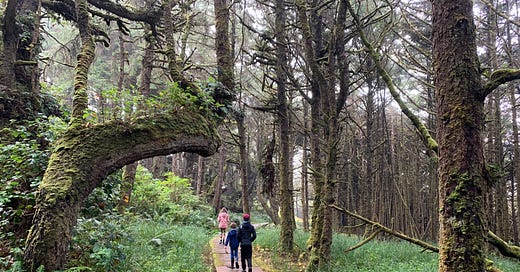



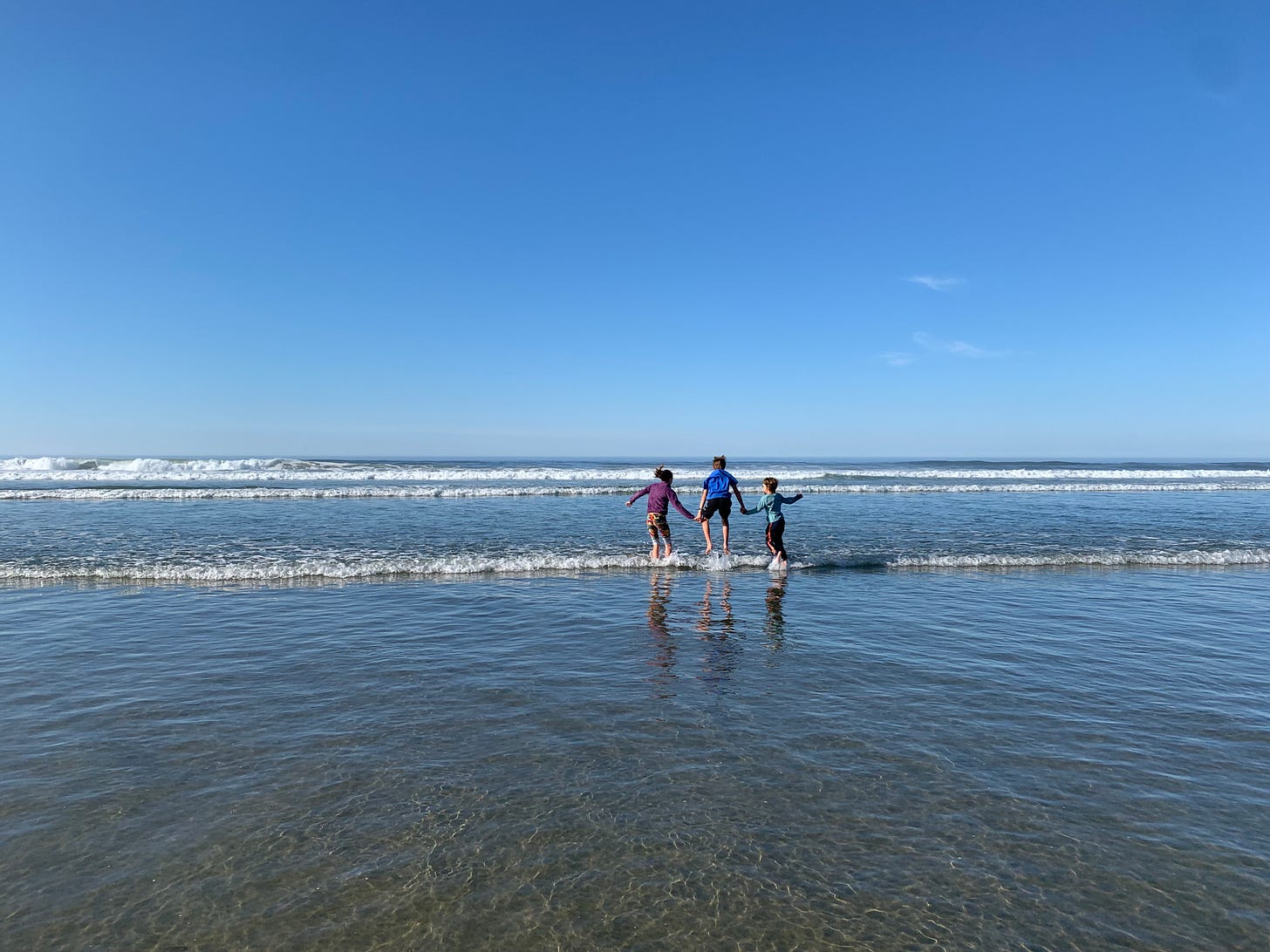
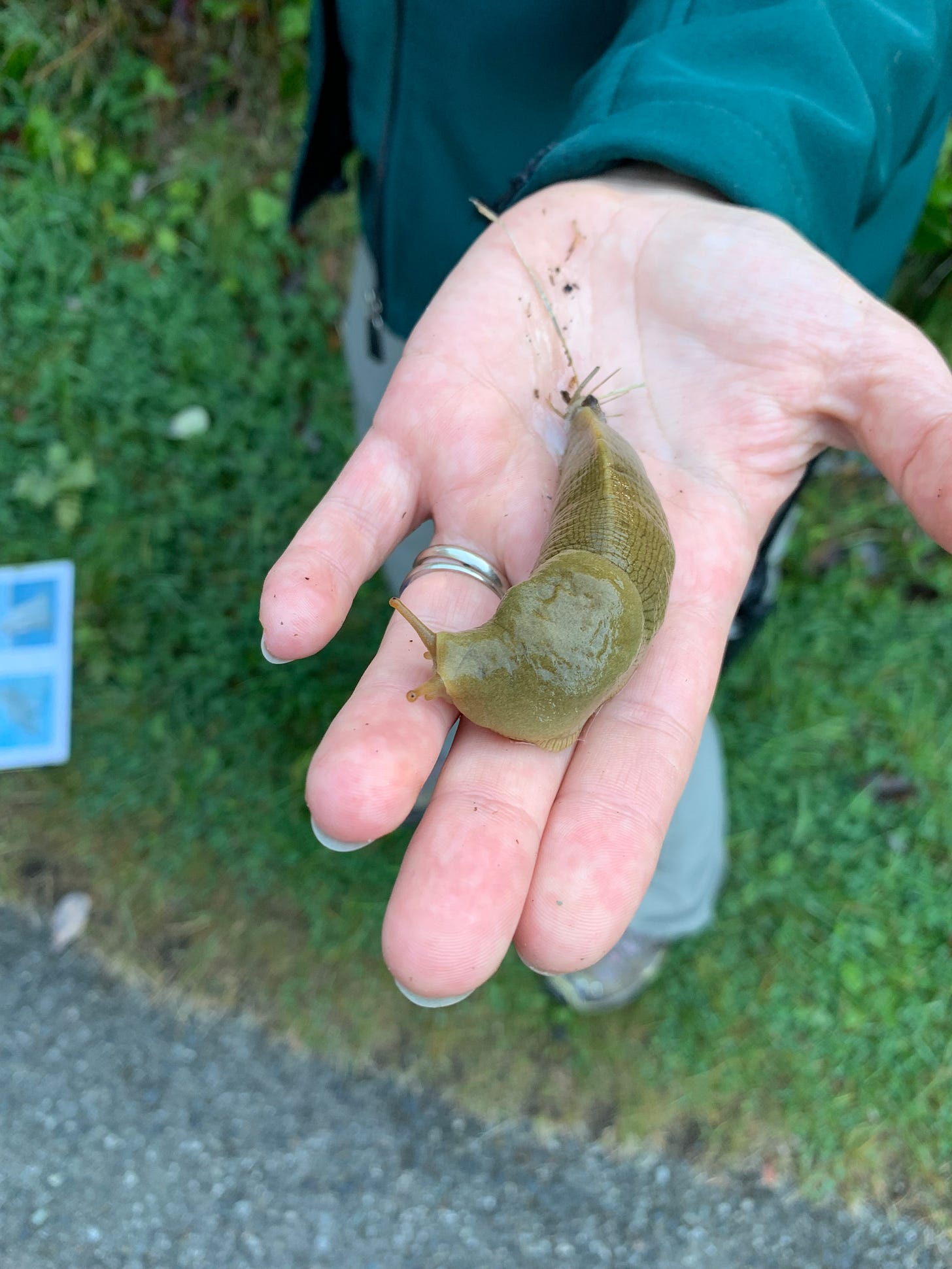
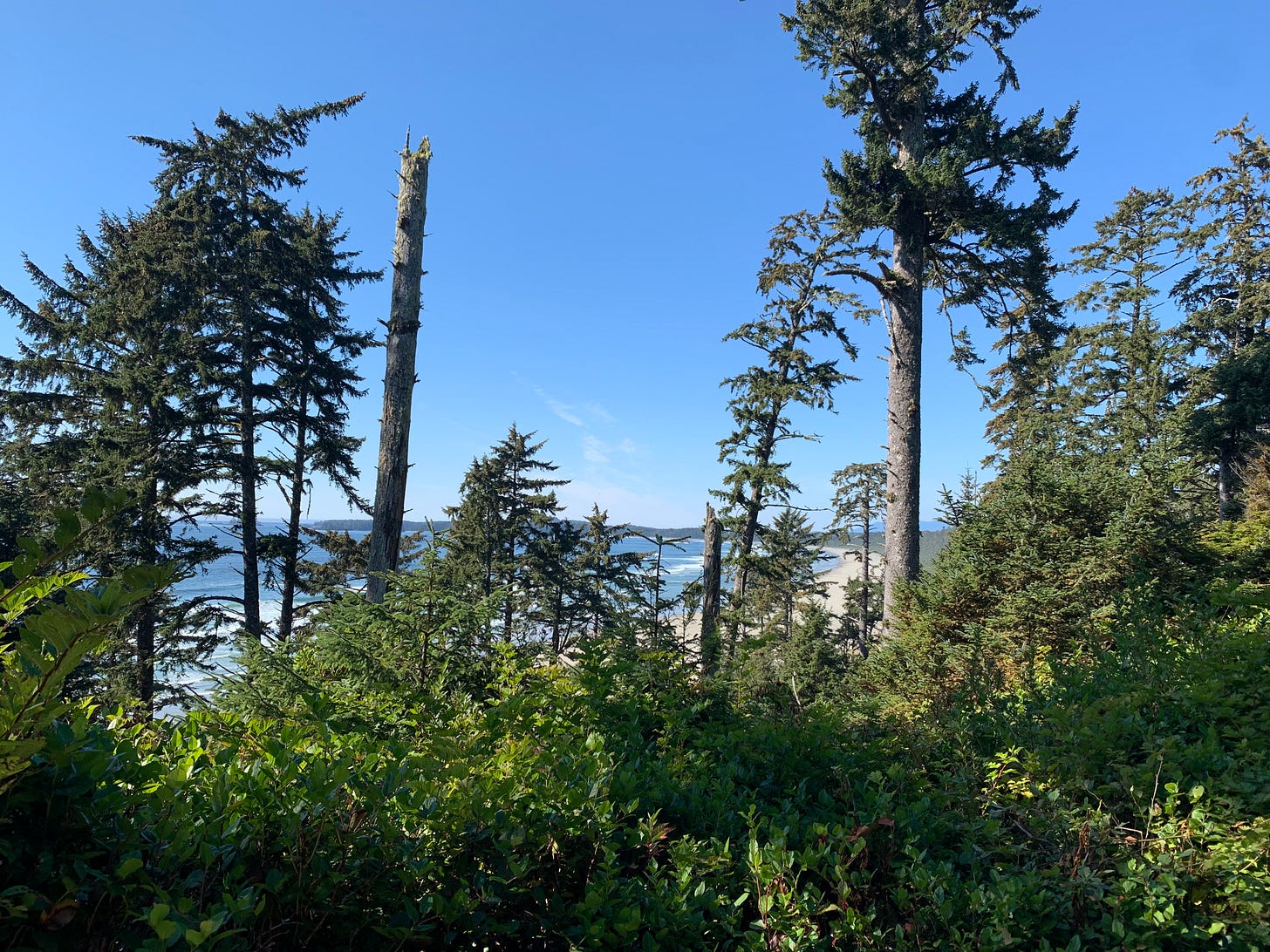
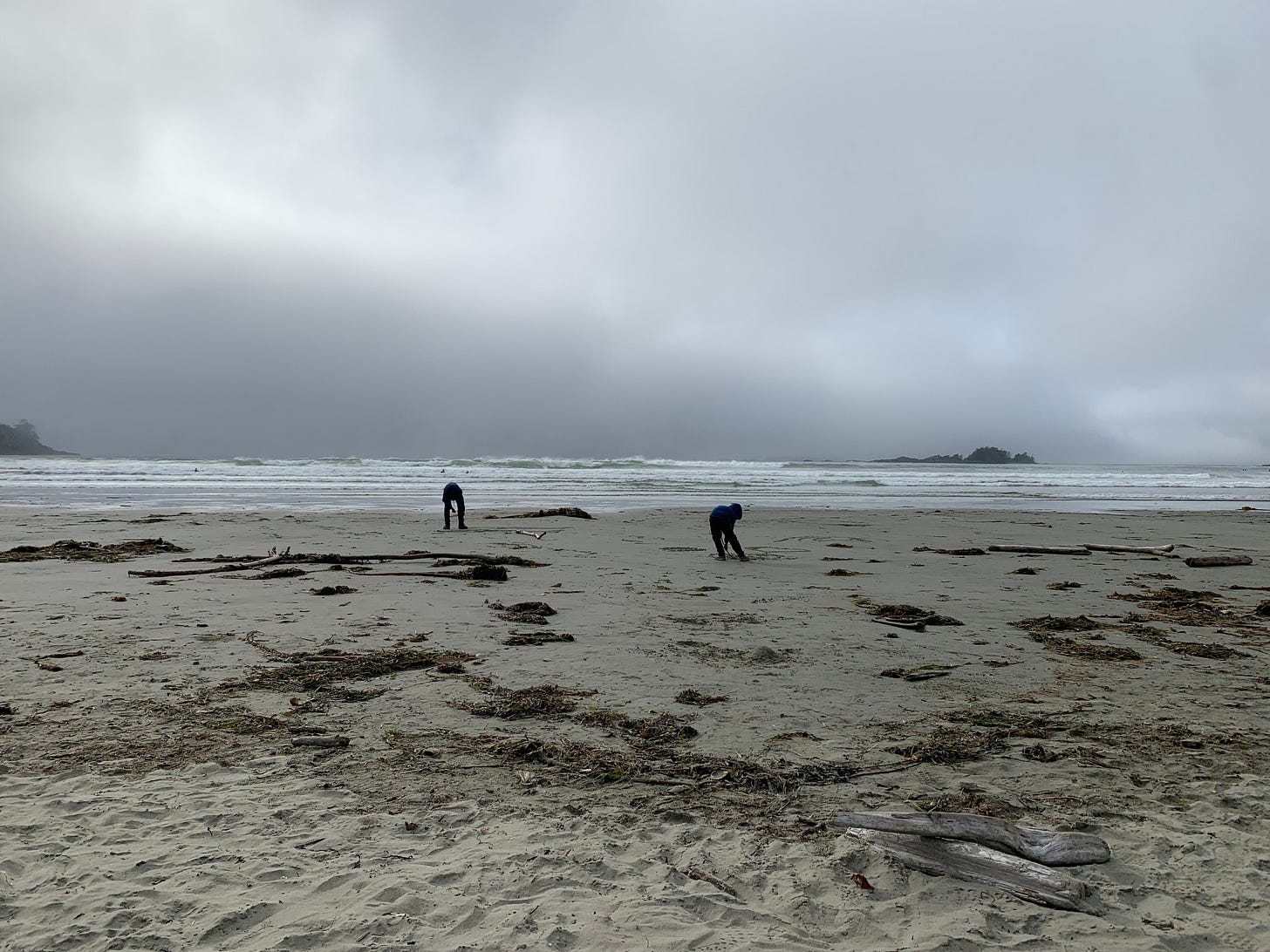
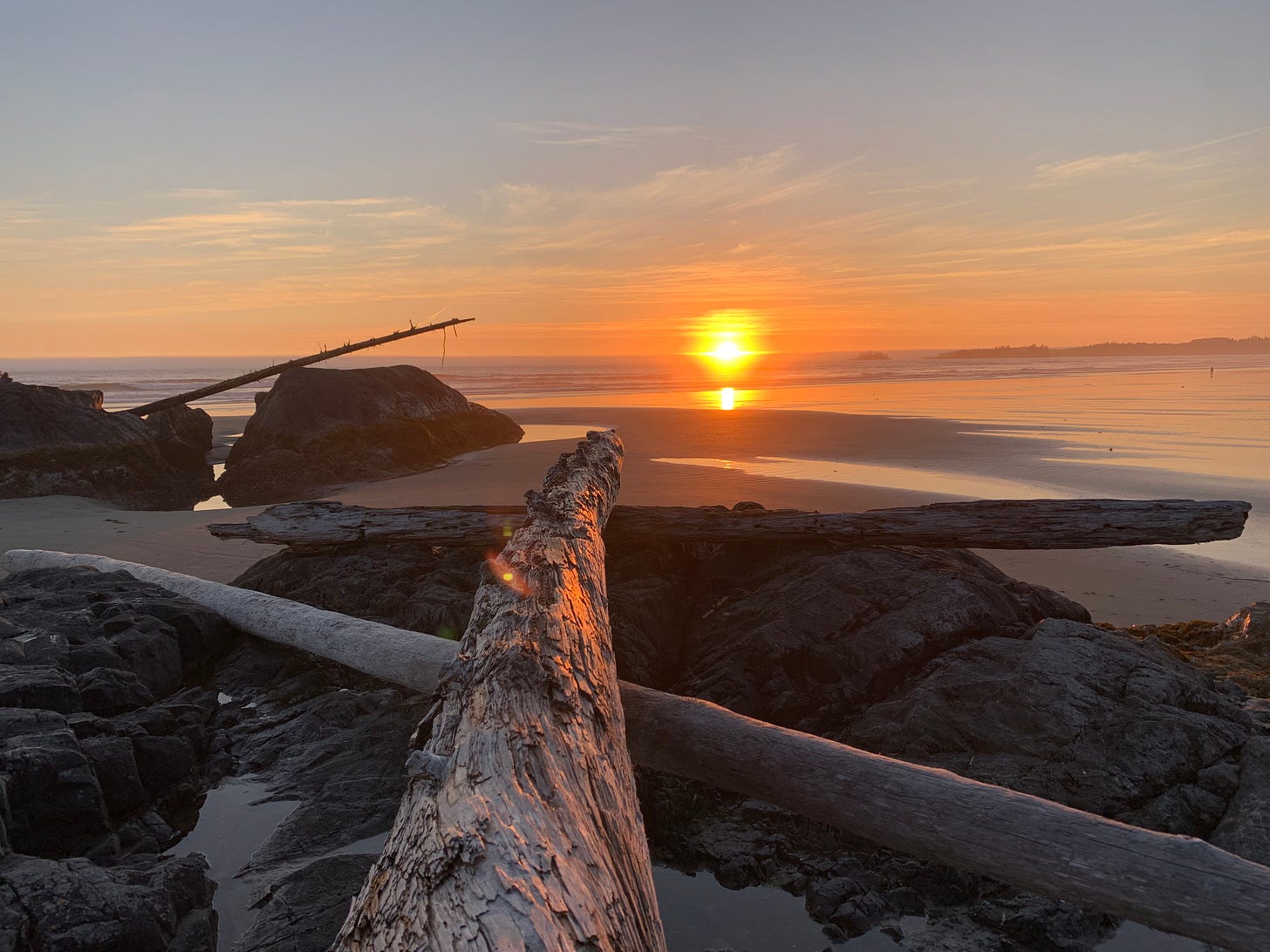
Very timely. The local farmer’s market opens this weekend.
Thanks for this wonderful post (I had been hoping to hear more news from your adventure). I think the pandemic was a wake-up call for many with regard to accessing food, growing a garden, and becoming more self-sustainable. We built a chicken coop in our edge-of-city backyard last year (we are permitted to have four) and it also draws neighbours every day (especially little ones), who we invite into the yard to pet the chickens. For our homeschool co-op this fall I am planning sessions on canning, cooking, wood working, soap making, and other self-sustaining skills.
Thanks so much again and looking forward to your next post!